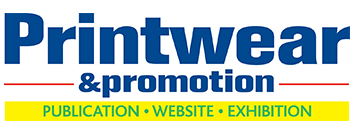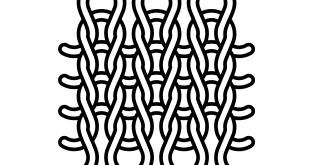 This month Natalie Greetham and Danielle Park of Madeira UK takes a look at the environmentally-friendly aspect of embroidery, in particular threads.
This month Natalie Greetham and Danielle Park of Madeira UK takes a look at the environmentally-friendly aspect of embroidery, in particular threads.
In today’s world we know how destructive toxic manufacturing chemicals are and the irreversible effects they have on our planet. Therefore we all have a responsibility to ensure these chemicals are not used, whether this is through responsible purchasing, sourcing or manufacturing.
What questions do you ask prior to purchase? Do you know where the textiles come from? How have they been produced and which chemicals have been used? Does the manufacturer responsibly dispose of waste or pollute their area?
APOs (Alkyl phenol oethoxylates/ethoxylates) have been discovered in some fabrics and threads. They are highly toxic, and studies have shown they affect the growth of cancer cells. They have also been linked to oestrogenic development and increased female hormone production in animals, which can affect gender assignment.
Look for certifications
Despite recommendations of an immediate ban on these compounds, some companies continue to use them. Would you want these chemicals in contact with your skin? Or have them released into the water cycle, knowing water treatment does not always remove them?
There are hundreds more chemicals unnecessarily used in manufacturing which have this effect on the environment, increasing the importance of buying from accredited sources.
Eco-friendly or recycled materials are now widely used. For example Madeira’s Polyneon ranges are manufactured with 30% of raw material provided from recycled plastics. Also, our production processes don’t use crude oil, one of the biggest contributors to the planet’s waste problem. Classic viscose is produced using treated fibres from naturally sustainable plants and trees.
Rely on the ISO9001, Oeko-Tex and REACH certifications, which ensure your supplier is not using dangerous chemicals or polluting methods.
So what do these certifications mean?
- ISO9001 (International Standards Organisation).
- Oeko-Tex means no toxic or harmful chemicals are present.
- Reach (Registration, Evaluation, Authorisation & Restriction of Chemicals). An EU regulation, it is the strictest law regulating chemical substances and regulates global industry. Only accept Class I or Class II as a minimum for your textile products.
Always check the certification number via the accrediting body to make sure the certification is genuine.
These certifications also assist you win business of brands and customers who prioritise ethical responsibility.
 Printwear & Promotion The Total Promotional Package
Printwear & Promotion The Total Promotional Package




